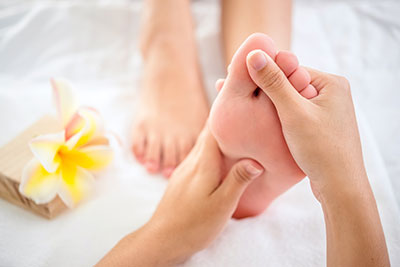Introduction
Reflexology, an ancient healing art dating back to ancient civilizations, has gained popularity in modern times as a holistic approach to health and well-being. This alternative therapy involves applying pressure to specific points on the feet, hands, and ears, which are believed to correspond to different organs and systems of the body. While reflexology is not a substitute for medical treatment, many people have experienced its numerous benefits, both physical and mental. In this blog, we will explore the potential advantages of reflexology and how it can contribute to overall wellness.
Stress Relief and Relaxation
One of the most widely recognized benefits of reflexology is its ability to induce relaxation and reduce stress. By stimulating the nerves in the feet and promoting the release of endorphins, reflexology helps to alleviate tension and anxiety. Many individuals find that a session of reflexology provides a calming and soothing experience, allowing them to escape from the pressures of daily life and enter a state of deep relaxation.
Improved Circulation
The gentle manipulation of the feet and hands during reflexology can enhance blood flow throughout the body. This improved circulation can have a range of positive effects, including better oxygenation of cells, more efficient delivery of nutrients, and faster removal of metabolic wastes. By optimizing circulation, reflexology may contribute to overall cardiovascular health and help in the management of conditions such as diabetes and hypertension.
Pain Reduction
Individuals suffering from chronic pain, such as migraines, back pain, and arthritis, often turn to reflexology for relief. By targeting specific reflex points associated with the affected areas, reflexologists aim to alleviate discomfort and promote the body’s natural healing processes. While research on the effectiveness of reflexology for pain management is ongoing, many people report significant reductions in their pain levels after regular treatments.
Enhanced Energy Levels
According to reflexology principles, the human body is traversed by energy pathways, and when blockages occur, they can lead to a range of health issues. By applying pressure to reflex points, it is believed that these blockages can be cleared, allowing energy to flow freely throughout the body. As a result, individuals often report feeling more energized and revitalized following a reflexology session, making it a popular choice for those seeking a natural energy boost.
Support for Mental Health
In addition to its physical benefits, reflexology may also have positive effects on mental well-being. Many people find that regular treatments help to reduce symptoms of anxiety and depression, improve sleep quality, and foster a sense of overall emotional balance. The relaxing nature of reflexology can provide a welcome break from the demands of modern life and offer a valuable opportunity for self-care.
Conclusion
While reflexology’s mechanisms of action are not yet fully understood, its potential benefits are increasingly recognized by both practitioners and the general public. Whether used as a standalone therapy or in conjunction with other medical treatments, reflexology offers a non-invasive and natural approach to promoting health and wellness. As always, individuals considering reflexology or any other complementary therapy should consult with qualified practitioners and healthcare professionals to ensure that their chosen treatments are safe and suitable for their needs. With its long history and growing body of anecdotal and clinical evidence, reflexology continues to intrigue and inspire those seeking alternative paths to well-being.













